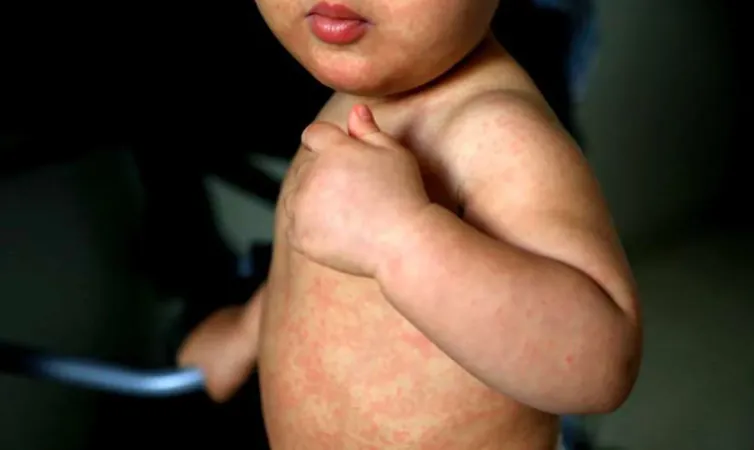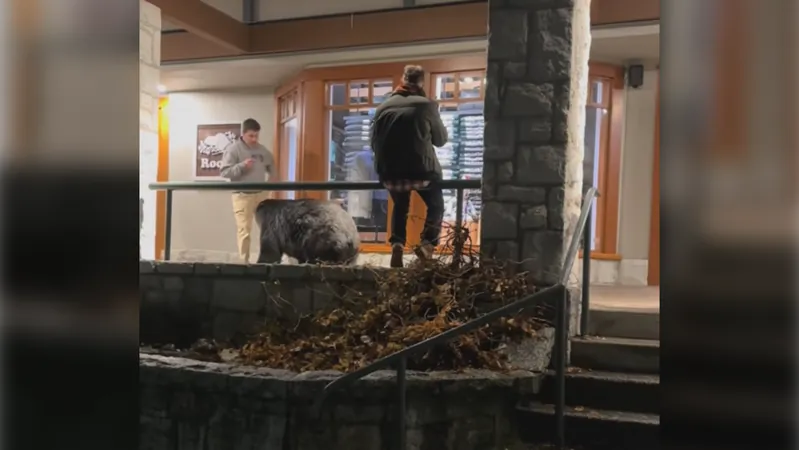
Urgent Call for Vaccination as Measles Cases Surge in the Americas
2024-11-03
Author: Jacques
Official Alert by PAHO
The Pan American Health Organization (PAHO) has issued an urgent epidemiological alert following a notable increase in measles cases across the Americas. This alarm comes as health authorities urge countries to bolster their vaccination campaigns and improve surveillance efforts to contain the virus.
Surge in Measles Cases
As of October 5, 2024, PAHO has recorded over 14,000 suspected measles cases, with 376 confirmed cases reported across eight countries, primarily in the United States (267 cases), Canada (82), and Argentina (11). The majority of these cases are linked to importation, raising concerns about the potential resurgence of this once-controlled disease. The Americas had been declared free from endemic measles and rubella in 2016 and 2015, respectively, making this uptick particularly alarming.
Health Risks of Measles
Measles is a highly infectious viral illness that predominantly affects children but can lead to severe complications, including gastrointestinal distress, hearing loss, vision impairment, pneumonia, and brain inflammation, which can be fatal in certain cases. The current outbreak is particularly alarming for children aged 1 to 9 and young adults between 20 and 29, with 57% of confirmed cases occurring in unvaccinated individuals and 28% with unknown vaccination status.
Ongoing Vaccination Efforts
Despite a temporary decrease in cases following late March, the presence of confirmed cases has persisted into subsequent months, underscoring the need for urgent action. PAHO has previously alerted member states about declining vaccination rates against measles, rubella, and mumps. In 2023, the coverage for the first dose of the measles-mumps-rubella (MMR) vaccine stood at 87%, with only 76% receiving the second dose—both figures fall significantly short of the 95% threshold needed to effectively prevent outbreaks.
Call to Action
In a clear call to action, PAHO is advising member countries to enhance their strategies for detecting cases actively and implement additional vaccination initiatives to bridge the existing gaps in immunity. Moreover, the organization emphasizes the necessity of effective communication with communities to promote vaccine acceptance. PAHO also recommends that travelers get vaccinated prior to visiting regions experiencing documented measles transmission.
Importance of Surveillance
The organization stresses the importance of strengthening surveillance systems and responding swiftly to any imported measles cases. Key elements in controlling the current situation include addressing low vaccination coverage, improving surveillance measures, and being vigilant about the movement of populations in the region, especially amidst concurrent dengue outbreaks that may obscure the detection of measles cases.
Global Perspective
Globally, measles continues to be one of the leading causes of child mortality, with the World Health Organization (WHO) reporting over 502,000 suspected cases across 182 member states as of mid-October 2024, of which more than 283,000 were confirmed.
Commitment from PAHO
PAHO remains dedicated to supporting countries in their efforts to curb the spread of the virus and protect vulnerable populations. The organization highlights the critical need for inter-institutional collaboration to mount an effective response to this public health challenge.
Conclusion - Necessity of Vaccination
As measles threatens to undermine progress in vaccination and public health, PAHO reiterates that vaccination remains the most effective strategy to prevent outbreaks. Keeping surveillance systems robust for early detection of imported cases and facilitating rapid responses to outbreaks is essential to safeguarding communities and preventing further escalation of this public health crisis.









 Brasil (PT)
Brasil (PT)
 Canada (EN)
Canada (EN)
 Chile (ES)
Chile (ES)
 España (ES)
España (ES)
 France (FR)
France (FR)
 Hong Kong (EN)
Hong Kong (EN)
 Italia (IT)
Italia (IT)
 日本 (JA)
日本 (JA)
 Magyarország (HU)
Magyarország (HU)
 Norge (NO)
Norge (NO)
 Polska (PL)
Polska (PL)
 Schweiz (DE)
Schweiz (DE)
 Singapore (EN)
Singapore (EN)
 Sverige (SV)
Sverige (SV)
 Suomi (FI)
Suomi (FI)
 Türkiye (TR)
Türkiye (TR)